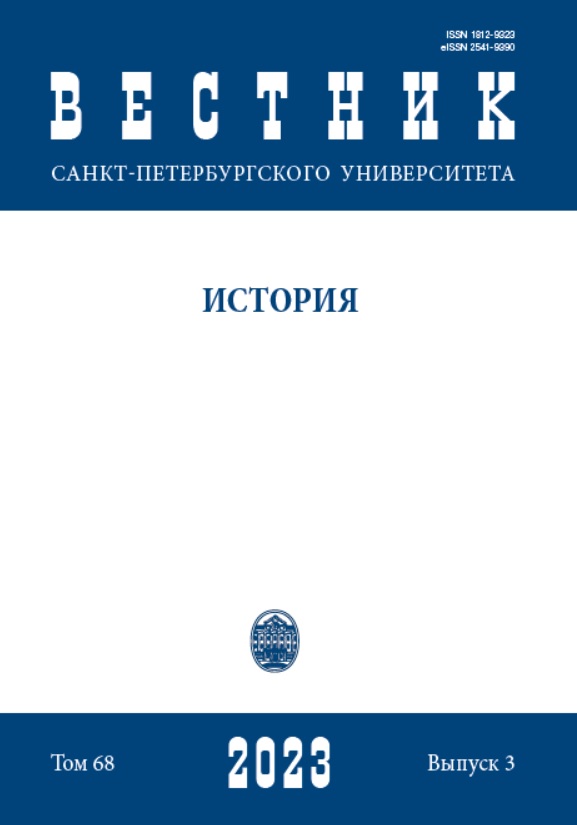Bavaria and the Adoption of the Basic Law for the Federal Republic of Germany
DOI:
https://doi.org/10.21638/spbu02.2023.312Abstract
The article analyzes the reasons for the rejection of the Basic Law of the Federal Republic of Germany by Bavaria in May 1949. The main contradictions were associated with the aspiration
of its leadership to establish the supremacy of the lands in relations with the federal center, which was considered by the leading parties of post-war Germany as excessive and unacceptable for federal structure. An important role was also played by the specifics of relations with the Bizone authorities and the increased influence of the Bavarian government in interzonal politics, which reached its apogee in the middle of 1948. In this regard, the politicians of the ruling party of Bavaria — the Christian Social Union — tried not only to consolidate political and financial guarantees to the lands in the prospective federal structure but also to establish possibilities for broad influence of the land government on federal policy. However, a small number of representatives of Bavaria in the interzonal bodies forced them to constantly maneuver between significant concessions to other fractions and an open protest against their decisions. After exhausting all of the possibilities of a compromise with the Christian Democratic
Union and the Social Democratic Party of Germany, the Christian Social Union deputy group and the Landtag rejected the Basic Law, but at the same time declared the obligatory observance of it and the aspiration to further participate in German affairs (the position ‘Our “nay” to Bonn, our “yea” to Germany’). Such a decision not only removed political responsibility from the Bavarian side, but also actualized the Bavarian question in the future West German state.
Keywords:
Bavaria, Basic Law for the Federal Republic of Germany, German federalism, Bizone, CSU
Downloads
References
Downloads
Published
How to Cite
Issue
Section
License
Articles of "Vestnik of Saint Petersburg University. History" are open access distributed under the terms of the License Agreement with Saint Petersburg State University, which permits to the authors unrestricted distribution and self-archiving free of charge.





